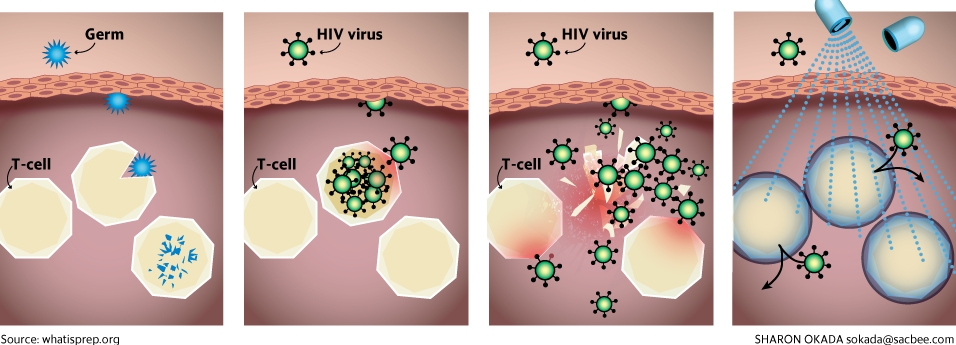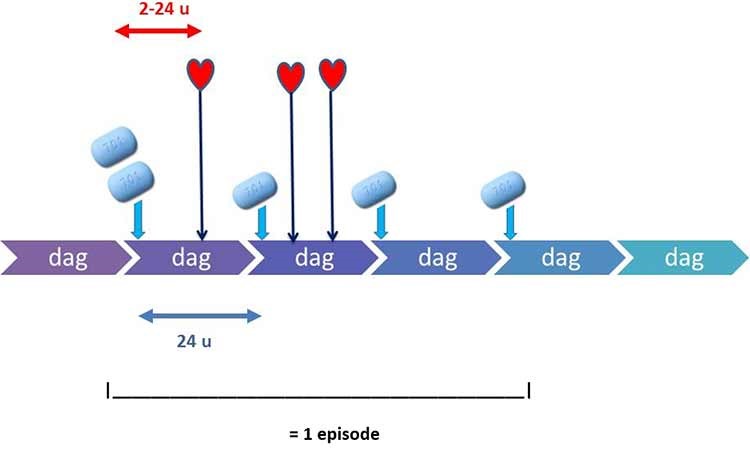
Promise PrEP
Optimise PrEP to Maximise Impact

What is PrEP?
Oral Pre-Exposure Prophylaxis (PrEP) is one of many tools that can be used to prevent HIV, however a very effective one. The PrEP pill contains antiretroviral medication, which has shown to prevent HIV infection among HIV negative people. It prevents HIV in multiplying itself in the body. Studies have shown that it is effecacious in reducing the risk for acquiring HIV, if it is taken properly.
Can you obtain PrEP?
PrEP is for individuals who are HIV negative but who are at higher risk of getting infected with HIV. It is very important to test for HIV before you start using, and to keep testing for HIV when you are taking PrEP. Also, it is important that you are followed up by a healthcare provider to verify that there are no problems with taking the medication (for example, for your liver or kidneys). In Belgium you only get PrEP reimbursed if you are eligible. To see whether you are eligible, please see here.
Is it possible to get infected with HIV when you take PrEP?
PrEP has a protective effect of about 99% when it’s taken correctly.
Adherence is crucial: it’s important to take the pills correctly and not miss a single dose. It’s assumed that PrEP is as effective as a condom. As all prevention methods, PrEP cannot offer 100% protection either and it’s recommended to use condoms as well.
How does PrEP work?
When HIV penetrates the body, it needs certain body cells in order to multiply. PrEP prevents the virus to penetrate those cells and to multiply, so it actually prevents HIV to settle in the body.

What are the advantages?
The most obvious positive aspect is that you are better protected against HIV.
In the Be-PrEP-ared study (the predecessor of PROMISE) we also found that men using PrEP generally experienced less anxiety for getting infected by HIV, and therefore were more able to enjoy sexual encounters.
What are the disadvantages?
As with other antiretroviral products, PrEP can have several side effects on the short term, such as nausea, fatigue, gastro-intestinal symptoms and headache. These side effects generally subside over time. However, some persons can experience kidney function problems, which is a good reason to be followed up by a healthcare provider.
Some persons might be taking more risks when they are using PrEP. It is always a good idea to discuss with a healthcare provider how you can lower your risks, if you are unsure about this.
How can you take PrEP?
If you are not a homo- or bisexual man then only daily use is efficacious, as no other studies have been able to prove otherwise. If you are a homo- or bisexual man (cisgender man having sex with men), then you can choose between daily and event-driven PrEP.- Option 1: daily use
Take one pill per day, every time at the same moment, within a time frame of four hours (two hours before until two hours after the exact hour). Practical tip: choose an hour that’s convenient for you, both during the week and on the weekend.
- Homo- and bisexual men who were born as men, are considered to be protected against HIV 2 hours after the second pill.
- If you are a woman or a transgender person, then optimal protection only starts after minimum 7 days of PrEP use!
- Option 2: event-driven use (only for homo- or bisexual men) At the latest, you take 2 pills before the anticipated sexual contact (and at the earliest 24 hours before the sexual contact). If your latest pill was less than 7 days ago, it is sufficient to take one. Afterwards, you take one pill every 24h, until two days after the last sexual contact. You should take a minimum of 4 pills in 3 days (or 3 pills in 3 days if your last pill was less than 7 days ago). It is important not to stop earlier! Pills should be taken on the same moment as the first intake, within a timeframe of 4 hours (2 hours before, 2 hours after). If you are too late (more than two hours after the initial hour) and you were at risk for HIV infection, then you should start PEP as soon as possible

Is PrEP also effective against other sexual transmitted infections (STIs)?
PrEP is only a way to protect yourself against HIV and not against other STIs (e.g. gonorrhoea, syphilis or hepatitis C). It also does not protect against pregancy. Therefore, it remains important to also use a condom (and lube) when having sex.